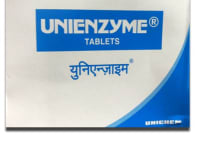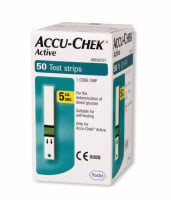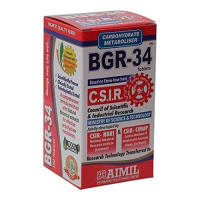NOTICE: unsafe with : Alcohol
USED FOR:
Heartburn
Acidity
Nausea
COMPOSITION:
Levosulpiride (75mg)
Esomeprazole (40mg)
Therapeutic Uses:
neuro cns
gastro intestinal

CAUTION
Taking a large amount of alcohol can increase acidity and cause acid reflux in the food pipe causing heartburn. This would decrease the effect of this drug and can aggravate your underlying condition.

WEIGH RISKS VS BENEFITS
Izra-L Capsule may be unsafe to use during pregnancy.Animal studies have shown adverse effects on the foetus, however, there are limited human studies. The benefits from use in pregnant women may be acceptable despite the risk. Please consult your doctor.

No information is available on the use of Izra-L Capsule during lactation. Please consult your doctor.

Do not drive unless you are feeling well.Izra-L Capsule may cause drowsiness, numbness, or dyskinesias, therefore they should be advised to avoid driving and operations requiring supervision.

There is limited information available on the use of Izra-L Capsule in patients with kidney disease. Please consult your doctor.However, limited data suggest a cautious use of this medicine in these patients.

Izra-L Capsule should be used with caution in patients with severe liver disease. Dose adjustment of Izra-L Capsule may be needed. Please consult your doctor.
Uses of Levosulpiride
Levosulpiride is used in the treatment of heartburn, nausea, vomiting, diabetic gastroparesis, schizophrenia and depression.
How to use Levosulpiride
Take this medicine in the dose and duration as advised by your doctor. Swallow it as a whole. Do not chew, crush or break it. Izra-L Capsule is to be taken empty stomach.Take it preferably 30 minutes before food.
How Izra-L Capsule works
Levosulpiride is an atypical antipsychotic. It works by modulating the action of certain chemical messengers in the brain that affect thoughts.
Common Headache, Fatigue, Sleepiness, Increased production of breast milk.
Expert advice for Levosulpiride
Do not take this drug if you are allergic to levosulpride.
Before taking the drug consult your doctor if you are pregnant, planning to become pregnant or breast feeding.
Immediately consult your doctor if you have absence if periods, abnormal milk secretion or changes in sexual desire, fever, muscle stiffness.
The drug can make you dizzy. Be careful when driving vehicles or operating machines.
Q. Is levosulpiride safe?
Levosulpiride is safe if used at prescribed doses for the prescribed duration as advised by your doctor
Q. Is levosulpiride an antidepressant?
No, it is used in the treatment of gastro-oesophageal reflux disease, irritable bowel syndrome, psychosis, dyspepsia
Q. What is levosulpiride?
Levosulpiride belong to class of medication called as atypical antipsychotics. It acts by decreasing the activity of dopamine in the brain
Q. What are its uses?
Levosulpiride is used in the treatment psychosis, depression, gastro-oesophageal reflux disease, irritable bowel syndrome and dyspepsia
Q. Does levosulpiride cause erectile dysfunction?
No. patients should follow advice of the doctor regarding the possible side effects.
Q. Can I take Levosulpiride with omeprazole?
Levosulpiride can be safely taken with omeprazole as no harmful effects have been reported clinically. A fixed-dose combination of these two medicines is also available. Levosulpiride works by increasing the gut motility and Omeprazole decreases the acid production in the stomach. So, this combination is very effective in the treatment of reflux esophagitis associated with acidity, heartburn, intestinal and stomach ulcers.
Uses of Esomeprazole
Esomeprazole is used in the treatment of acidity, heartburn, intestinal ulcers and stomach ulcers.
How to use Esomeprazole
Take this medicine in the dose and duration as advised by your doctor. Swallow it as a whole. Do not chew, crush or break it. Izra-L Capsule is to be taken empty stomach.Take it preferably 30 minutes before food.
How Izra-L Capsule works
Esomeprazole is a proton pump inhibitor (PPI). It works by reducing the amount of acid in the stomach which helps in relief of acid-related indigestion and heartburn.
Common Nausea, Headache, Abdominal pain, Constipation, Flatulence, Diarrhoea.
Expert advice for Esomeprazole
Inform your doctor if you do not feel better after taking it for 14 days as you may be suffering from some other problem that needs attention. Esomeprazole can decrease magnesium levels in blood. Get your magnesium levels checked regularly. You may need a magnesium supplement or need to discontinue your medicine. Inform your doctor if you are suffering from osteoporosis as Esomeprazole can weaken your bones by decreasing calcium levels in blood. You may need a calcium supplement, preferably calcium citrate. Esomeprazole is a well-tolerated medicine and provides relief for a long time. It may take a few days to show its effect. You can take an antacid for a quick relief during this time unless your doctor has asked you not to use them. Once you start feeling better, do not stop taking your medicine. Take it for the duration as advised by your doctor
Q. Is Esomeprazole available over the counter?
No, Esomeprazole is not available as an over-the-counter product. It is a prescription medicine and is available only when prescribed by a physician.
Q. Can I take Esomeprazole with aluminum hydroxide and magnesium carbonate or other antacids?
Esomeprazole can be taken with antacids like aluminum hydroxide and magnesium carbonate. But antacids should be taken two hours before or one hour after taking Esomeprazole. This is because Esomeprazole requires a lower pH for its action and antacids can increase the pH of the stomach and hence decrease the action of Esomeprazole.
Q. Is Esomeprazole a controlled substance?
Esomeprazole is not a controlled substance. It is available when prescribed by a doctor.
Q. Is Esomeprazole safe to use?
Yes, Esomeprazole is safe if taken for prescribed duration in prescribed doses as advised by your doctor. However, its use is associated with some common side effects like nausea, abdominal pain, constipation, diarrhea, and flatulence.
Q. Can I take Esomeprazole with paracetamol (acetaminophen)?
Esomeprazole can be taken with paracetamol. No drug-drug interactions or harmful effects have been seen when they are used together.
Q. Does Esomeprazole cause weight loss?
Esomeprazole is not known to lower weight. However, it may cause damage to your stomach lining on a long term use and weight loss could be an indication of the same or it can be due to an underlying condition which requires immediate attention.
Q. Does Esomeprazole cause hair loss?
Hair loss has been reported as a rare side effect of Esomeprazole. Talk to your doctor in case you experience excessive hair fall while you are taking Esomeprazole.
Q. Why is Esomeprazole better than omeprazole?
Esomeprazole and Omeprazole both belong to the same class of drugs and are used in disease conditions with excess acid production like heartburn, acidity, stomach ulcers and intestinal ulcers. Esomeprazole is an S-isomer of omeprazole and is seen to provide more effective and rapid acid control than omeprazole, without any increase in side effects and fewer variations in response between different patients.
Q. Does Esomeprazole cause palpitations (feeling of rapid, strong heart beat)?
Esomeprazole can lower the magnesium levels in your body and this can cause palpitations. You must get your magnesium levels checked regularly if you have to use this medicine for more than three months.
Q. Can a patient undergoing dialysis take Esomeprazole?
Esomeprazole can be taken by a patient undergoing dialysis in a manner as prescribed by the doctor. This is extensively bound to proteins in the body, so, it is not expected to be removed by dialysis.
Q. Is Esomeprazole better than rabeprazole?
Both Esomeprazole and rabeprazole are similar in efficacy and safety. One study mentions rabeprazole as a better choice for mild-to-moderate gastroesophageal reflux disease (GERD) compared to Esomeprazole while another study mentions Esomeprazole provides a more effective and faster acid-inhibitory effect.
Q. Is Esomeprazole better than ranitidine?
Both Esomeprazole and ranitidine lower acid production in your stomach and treat heartburn and heal stomach and intestine ulcers. There are not many studies which compare Esomeprazole with ranitidine. However, one study mentions that Esomeprazole once daily is more effective and well-tolerated compared ranitidine twice daily for healing gastric ulcers.
Q. Can I take Esomeprazole with domperidone?
Esomeprazole can be taken with domperidone. Esomeprazole decreases the acid secretion and domperidone increases the gut motility and helps in nausea and vomiting. It is safe to use the two medicines together and these are also available as a fixed-dose combination and help in the treatment of heartburn, stomach and duodenal ulcers and gastritis.
Q. Can I take Esomeprazole with clopidogrel?
Esomeprazole decreases the activation of clopidogrel and hence reduces its effectivity. Avoid using both drugs together or use an alternate drug. Patients who are taking these medicines together needs to be monitored closely by a doctor.
Q. Can I take Esomeprazole with levosulpiride?
Esomeprazole can be taken with levosulpiride. Esomeprazole decreases the acid secretion and levosulpiride increases the intestinal motility. It is safe to use the two medicines together. Esomeprazole is also available as a fixed-dose combination with levosulpiride. This combination helps in the treatment of heartburn, stomach and duodenal ulcers and gastritis.
Q. Is dexlansoprazole better than Esomeprazole?
Dexlansoprazole and Esomeprazole belong to the same class of medicines and works the same way. Some studies mention that dexlansoprazole helps in better control of symptoms like heartburn as compared to Esomeprazole, however, there is no definitive evidence for this and different patients may find that one works better for them than the other.
Q. Is Esomeprazole an antacid?
Esomeprazole belongs to the class of proton pump inhibitors (PPIs) which decrease the amount of acid produced in the stomach. While antacids only neutralize the stomach acid by coating the stomach.
Q. Does Esomeprazole cause tinnitus?
Tinnitus has been reported as a rare side effect with Esomeprazole (
Q. Does Esomeprazole has an expiry date?
Yes, Esomeprazole does expire. Please check the expiry date written on the pack and it refers to the last day of that month. Do not use Esomeprazole after the expiry date.
Q. Is Esomeprazole an antibiotic?
No, Esomeprazole is not an antibiotic. It is a proton pump inhibitor used for the treatment of acidity, heartburn, intestinal ulcers and stomach ulcers.
Q. Can I take Esomeprazole with nitrofurantoin?
Esomeprazole can be taken with nitrofurantoin. No drug-drug interactions or any harmful effects have been reported when they are used together.
Q. Can I take Esomeprazole with ranitidine?
Yes, Esomeprazole can be taken with ranitidine. No drug-drug interactions or any harmful effects have been reported when they are used together. As Esomeprazole do take some days to show its action, so, ranitidine is given to the patients to immediate relief.
Q. Can I take Esomeprazole with ibuprofen?
Esomeprazole can be taken with ibuprofen. No drug-drug interactions or any harmful effects have been reported when they are used together.
Q. Can I take Esomeprazole with hyoscine?
Esomeprazole can be taken with hyoscine. No drug-drug interactions or any harmful effects have been reported when they are used together.
Q. Does Esomeprazole cause tiredness?
Tiredness is a rare side effect seen with Esomeprazole. Talk to your doctor if you experience excessive tiredness as this may be due to some liver abnormalities as Esomeprazole breaks down in the liver or due to an underlying condition that needs attention.
Q. Can the use of Esomeprazole cause weight gain?
Weight gain has not be reported to occur with Esomeprazole. However, its use is associated with some common side effects like nausea, abdominal pain, constipation, diarrhea, and flatulence.
Q. Can the use of Esomeprazole affect birth control?
Esomeprazole does not seem to affect birth control, as no drug interactions have been reported between Esomeprazole and oral birth control pills. It is safe to take the two medications together.
Q. Can a patient with underlying cardiac disease take Esomeprazole?
Patients with the underlying cardiac disease can take Esomeprazole. However, Esomeprazole can interact with certain drugs (e.g clopidogrel, digoxin) which might be used by these patients. They may need to be monitored for digoxin toxicity. Esomeprazole decreases the activation of clopidogrel, thus reducing its effects, so the patients taking these medicines together should also be monitored regularly.
Q. Can Esomeprazole be given in cancer patients?
Esomeprazole is seen to increase the antitumor effect of the medicines with no added side effects. Since cancer patients may also take many medicines for the primary cancer treatment or for other symptoms and infections, there are chances of drug-drug interactions with Esomeprazole. So, it should be used only as advised by your doctor.
Q. How is Esomeprazole different from pantoprazole?
Esomeprazole and pantoprazole both belong to the same class of drugs and are seen to be equally effective in the treatment of disease conditions with excess acid production like heartburn, acidity, stomach ulcers and intestinal ulcers. However, as per some research studies, pantoprazole provides significantly faster first-time relief from daytime and night-time GERD-related symptoms than Esomeprazole.
Q. Is Esomeprazole more effective than lansoprazole?
Yes, Esomeprazole is seen to achieve a better acid control and is more effective in relief of heartburn symptoms and acid reflux symptoms as compared to lansoprazole in many research studies. Also, healing rates were consistently high with Esomeprazole.
Q. Can I take Esomeprazole with sodium bicarbonate as a buffer?
Sodium bicarbonate buffer can protect against acid degradation of Esomeprazole in addition to immediate antacid action. Esomeprazole can be taken with sodium bicarbonate as a buffer only in a manner as prescribed by the doctor.
Q. Can I take Esomeprazole with naproxen?
Naproxen is a nonsteroidal anti-inflammatory drug (NSAID) which works by reducing inflammation and pain in the body. Esomeprazole and naproxen can be taken together. There are no reported drug interactions or harmful effects of using Esomeprazole with naproxen.
Q. Is Esomeprazole a narcotic?
Esomeprazole is not a narcotic. It is a proton pump inhibitor used for the treatment of acidity, heartburn, intestinal ulcers and stomach ulcers.
Q. CAn the use of Esomeprazole cause constipation?
Constipation has been reported as a common side effect of Esomeprazole. Other common side effects associated with its use are nausea, abdominal pain, diarrhea, and flatulence.
Q. What is the difference between Esomeprazole and famotidine ?
Esomeprazole is a proton pump inhibitor whereas Famotidine is an H2 histamine receptor blocker. Esomeprazole is more potent at inhibiting gastric acid production compared to famotidine and also its effect lasts for a long time.
Q. Is Esomeprazole a steroid?
Esomeprazole is not a steroid. It is a proton pump inhibitor used for the treatment of acidity, heartburn, intestinal ulcers and stomach ulcers.
Alkem Laboratories Ltd
₹17/Tablet Out of stock


 Izra-L Capsule
Izra-L Capsule  Bookmark
Bookmark





















